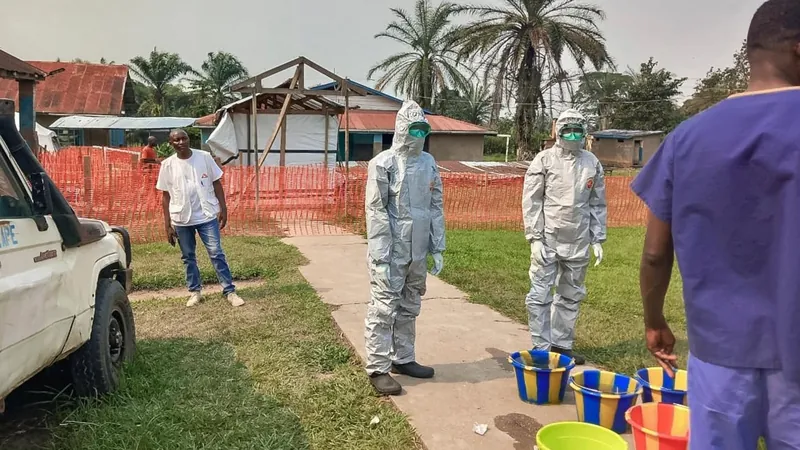
Revolutionary Discovery: Giant DNA Loops in Our Mouths May Protect Against Cancer
2025-09-15
Author: Li
A Surprising Discovery in Oral Health
Recent research has unveiled astonishing giant loops of DNA, known as 'Inocles', residing within the bacteria in our mouths. These monumental genetic structures could play a crucial role in not only enhancing our oral health but also fortifying our immune systems, potentially lowering the risk of certain cancers.
What Are Inocles?
Inocles resemble large plasmids—barriers of genetic information located outside the primary DNA of many microbes. Conducted by an esteemed team at the University of Tokyo, the study suggests that these Inocles may act as adaptive mechanisms for Streptococcus bacteria, helping them navigate the unique and challenging environment of our mouths.
Unlocking the Mysteries of the Microbiome
According to microbiologist Yuya Kiguchi, the intricacies of the oral microbiome are still largely uncharted territory. "Though numerous types of bacteria populate our mouths, their specific functions remain largely unknown," Kiguchi states.
A Groundbreaking Method of Discovery
Researchers meticulously analyzed saliva from 56 volunteers, and expanded the study to 476 samples to assess the prevalence of Inocles within the population. Impressively, nearly 75% of individuals carried these genetic elements. Ironically, their sheer size has previously hindered detection, as standard DNA sequencing methods struggle to piece together larger sequences.
Innovative Sequencing Technology
To overcome these hurdles, scientists developed a custom sequencing system called preNuc, which streamlined the sampling process by filtering out human DNA. This advance enabled them to focus on bacterial DNA, revealing that Inocles are around 350 kilobase pairs long—making them one of the largest extrachromosomal elements within the human microbiome.
Potential Health Benefits
The researchers discovered that a strikingly lower occurrence of Inocles was noted in individuals with head and neck cancers. This correlation raises intriguing questions about whether these DNA loops offer protective benefits against cancer or if another factor might simultaneously diminish Inocles and elevate cancer risks.
Future Research Directions
The team is eager to delve deeper into how Inocles function, their ability to transfer between individuals, and the broader implications for oral health. Kiguchi offers a captivating analogy: "It's like discovering a book with additional footnotes stapled to it; we are just beginning to read and comprehend their significance."
Conclusion: A New Frontier in Microbiome Research
This groundbreaking discovery heralds a new era in microbiome research, offering possibilities that could reshape our understanding of the connections between oral health and overall well-being. Who knew our mouths held such powerful, protective secrets?




 Brasil (PT)
Brasil (PT)
 Canada (EN)
Canada (EN)
 Chile (ES)
Chile (ES)
 Česko (CS)
Česko (CS)
 대한민국 (KO)
대한민국 (KO)
 España (ES)
España (ES)
 France (FR)
France (FR)
 Hong Kong (EN)
Hong Kong (EN)
 Italia (IT)
Italia (IT)
 日本 (JA)
日本 (JA)
 Magyarország (HU)
Magyarország (HU)
 Norge (NO)
Norge (NO)
 Polska (PL)
Polska (PL)
 Schweiz (DE)
Schweiz (DE)
 Singapore (EN)
Singapore (EN)
 Sverige (SV)
Sverige (SV)
 Suomi (FI)
Suomi (FI)
 Türkiye (TR)
Türkiye (TR)
 الإمارات العربية المتحدة (AR)
الإمارات العربية المتحدة (AR)